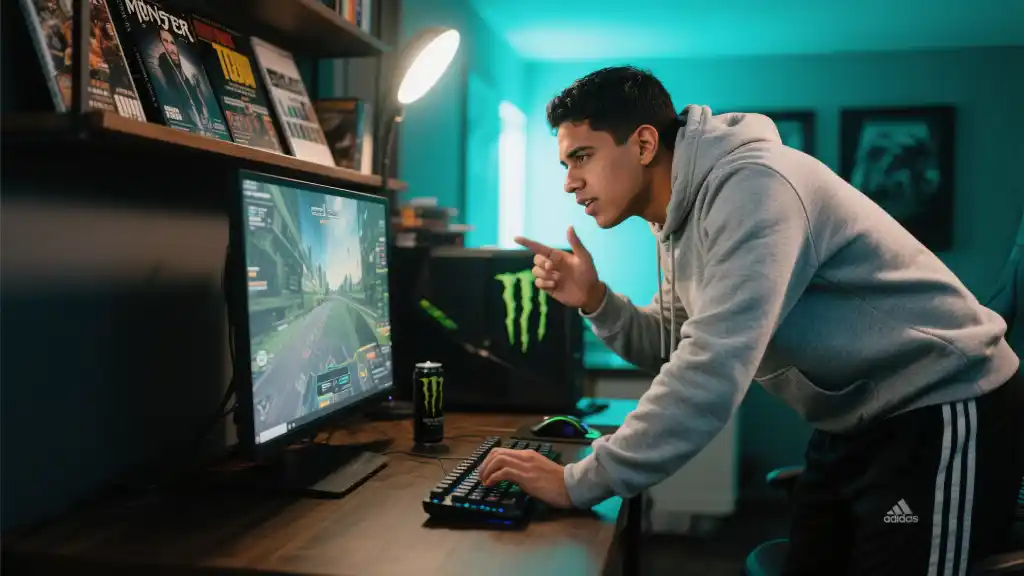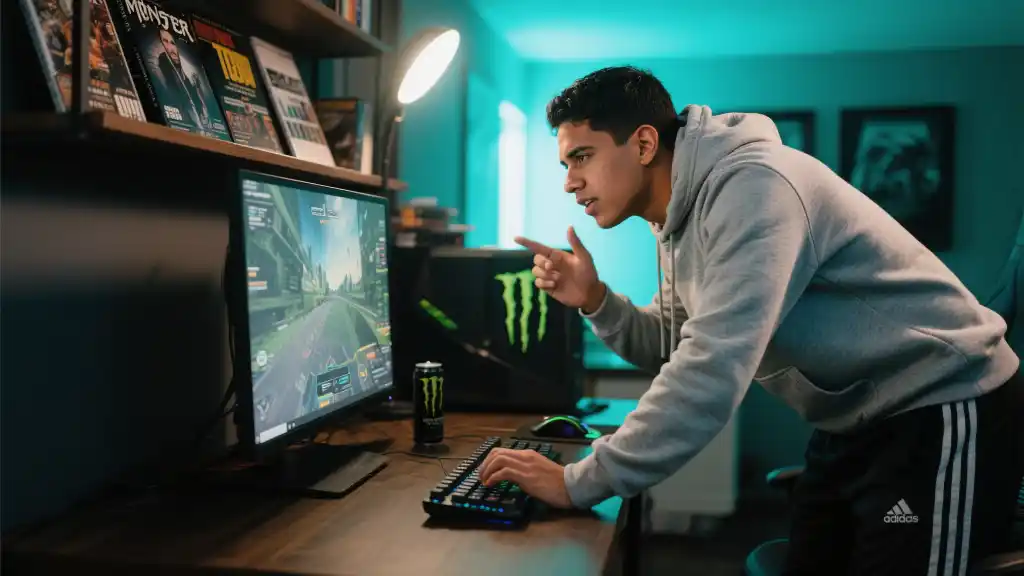Article directoryCloseOpen
- Central Processing Unit (CPU)
- Graphics Processing Unit (GPU)
- Memory and Storage
- Essential Features to Consider
- Recommended Builds
- What is the best gaming PC under $1000 in 2025?
- How much RAM do I need for gaming?
- Is it better to buy a pre-built gaming PC or build one myself?
- Can I upgrade components later?
- What should I look for in a gaming monitor to complement my PC?
We explore the essential components that make a great gaming PC, from powerful CPUs and GPUs to ample RAM and fast SSDs. You’ll learn about standout features that enhance gameplay, such as superior cooling systems, customizable RGB lighting, and solid build quality. Moreover, we provide expert advice on where to buy these rigs, how to spot the best deals, and tips for making upgrades down the road.
Whether you’re a casual gamer or a competitive player aiming for the top, our curated list ensures that you’re equipped with the optimal setup to unleash your potential and conquer your opponents. Dive in to discover which gaming PCs offer the best value, helping you rise to the challenge without exceeding your budget. Get ready to elevate your gaming with the ultimate choices in performance and style—all under $1000!
## Powerful Components for Gaming Performance
When diving into the best gaming PC under $1000, it’s crucial to focus on the core components that make up a powerful gaming rig. The balance between CPU, GPU, RAM, and storage can dramatically affect your gaming experience.
Central Processing Unit (CPU)
The CPU is the heart of your gaming PC. Look for quad-core or even six-core processors, such as AMD Ryzen 5 or Intel Core i5, which provide the processing power needed for smooth gameplay.

Graphics Processing Unit (GPU)
For any gaming PC, the GPU can be the difference between low frame rates and stunning visuals. Within a budget of $1000, options include:
Memory and Storage
Don’t overlook RAM and storage; they are essential for smooth performance. A minimum of 16GB of RAM is recommended to handle modern gaming demands. For storage, a blend of SSD and HDD is often the most effective solution.
Essential Features to Consider
There are other features to think about when selecting your gaming PC, especially for under $
Recommended Builds
Here’s a quick look at some recommended builds for a gaming PC under $1000:
| Component | Recommended Model | Approximate Price | Notes | Performance |
|---|---|---|---|---|
| CPU | AMD Ryzen 5 3600 | $200 | Great multitasking | High |
| GPU | NVIDIA GTX 1660 Super | $250 | Ideal for 1080p | High |
| RAM | 16GB DDR4 | $70 | Sufficient for gaming | Medium |
| Storage | 500GB SSD + 1TB HDD | $100 | Quick access | High |
Each of these components works together to create a gaming experience that is both immersive and visually stunning. Stay focused on these key features when building or purchasing your gaming PC and you’ll be ready to dive into any virtual battlefield.

Absolutely, when you’re investing in a gaming PC under $1000, one of the great features is that many of these systems are built with upgrades in mind. This means the manufacturers often leave room for you to add more RAM or swap out the graphics card if your gaming demands increase in the future. It’s smart to check the specifications of the motherboard before you buy. Look for extra RAM slots and ensure there are multiple drive bays so you can easily install additional storage units down the line.
This future-proofing is a huge advantage because gaming requirements are always changing. As new titles are released, they often demand higher performance, which means your PC needs to keep up. Having the option to upgrade components allows you to enhance your gaming setup without the need to purchase an entirely new system. Whether you want to boost your RAM from 8GB to 16GB or install a more powerful GPU, that flexibility can make your investment go much further in the long run. By planning ahead and choosing a system that supports upgrades, you allow yourself the freedom to adapt to the ever-evolving gaming landscape.
What is the best gaming PC under $1000 in 2025?
In 2025, some of the top contenders for the best gaming PC under $1000 include the AMD Ryzen 5 3600 with NVIDIA GTX 1660 Super for optimal performance and gaming visuals at 1080p. These components strike a great balance between price and power.
How much RAM do I need for gaming?
For most gaming scenarios, 16GB of RAM is ideal. This amount provides sufficient memory for modern games and multitasking, ensuring smooth gameplay and fast load times.
Is it better to buy a pre-built gaming PC or build one myself?
It depends on your preferences and expertise. Building your own PC can be more cost-effective and customizable, while pre-built gaming PCs are convenient and often come with warranties and support. If you’re unsure about building one, an excellent pre-built model can serve you well.
Can I upgrade components later?
Yes, many gaming PCs under $1000 are designed with future upgrades in mind. Ensure that the motherboard has extra slots for RAM and that there are drive bays available for additional storage. This flexibility allows you to enhance your gaming experience as your needs evolve.
What should I look for in a gaming monitor to complement my PC?
When choosing a monitor, look for a refresh rate of at least 60Hz for standard gaming, but 144Hz is ideal for competitive gaming. Additionally, consider response time (1ms to 5ms), resolution (1080p or higher), and panel type for the best visual experience.
